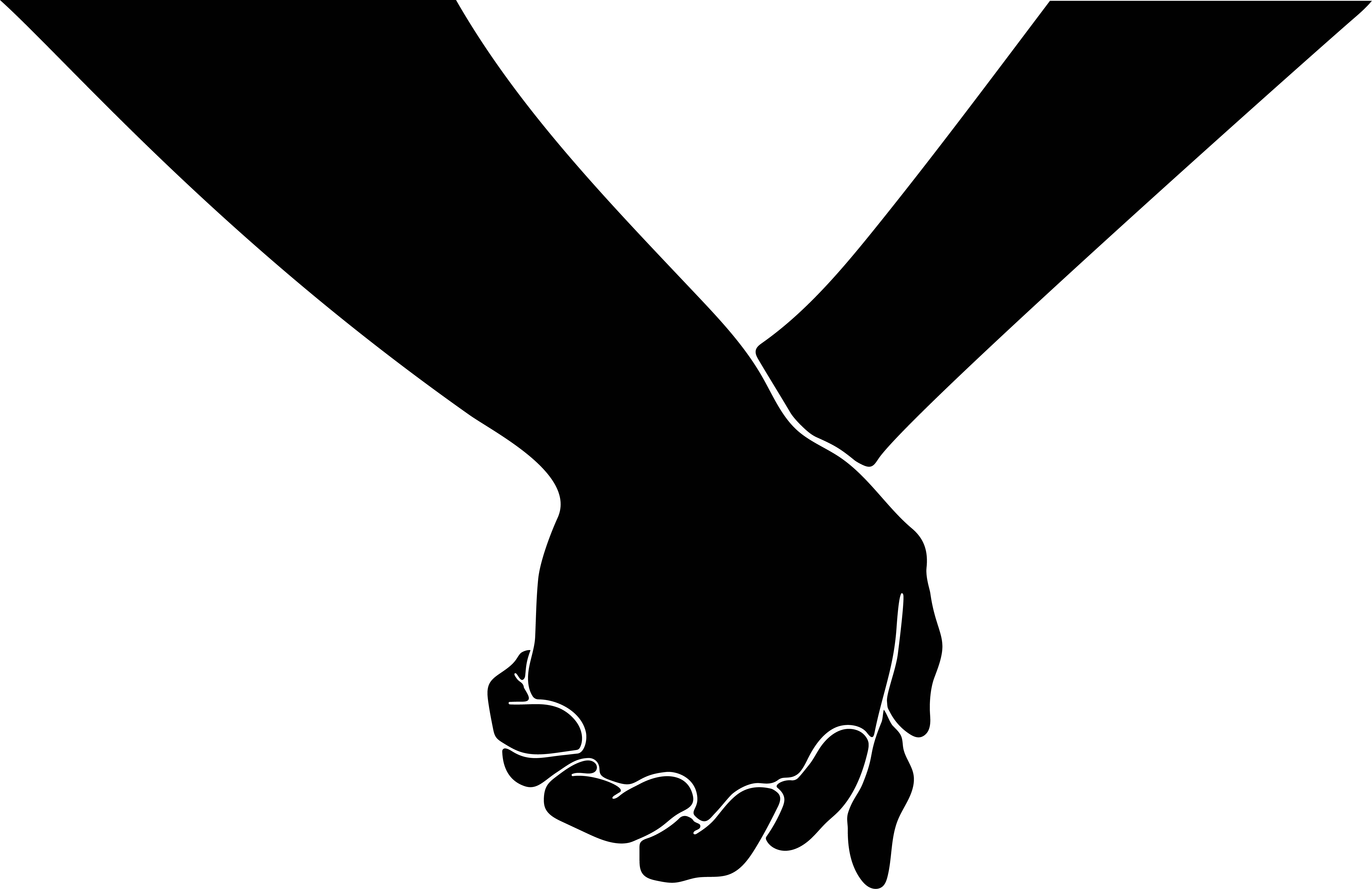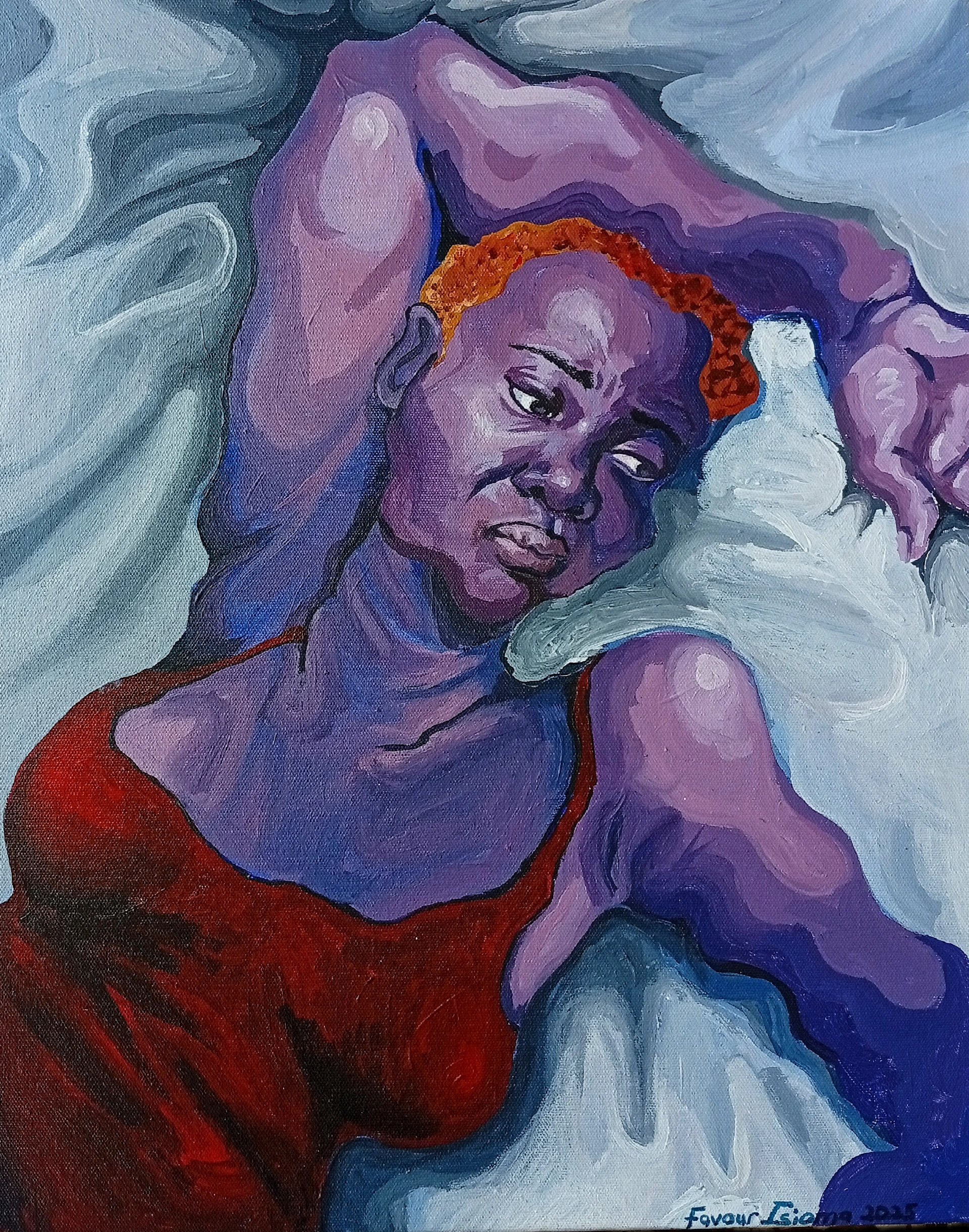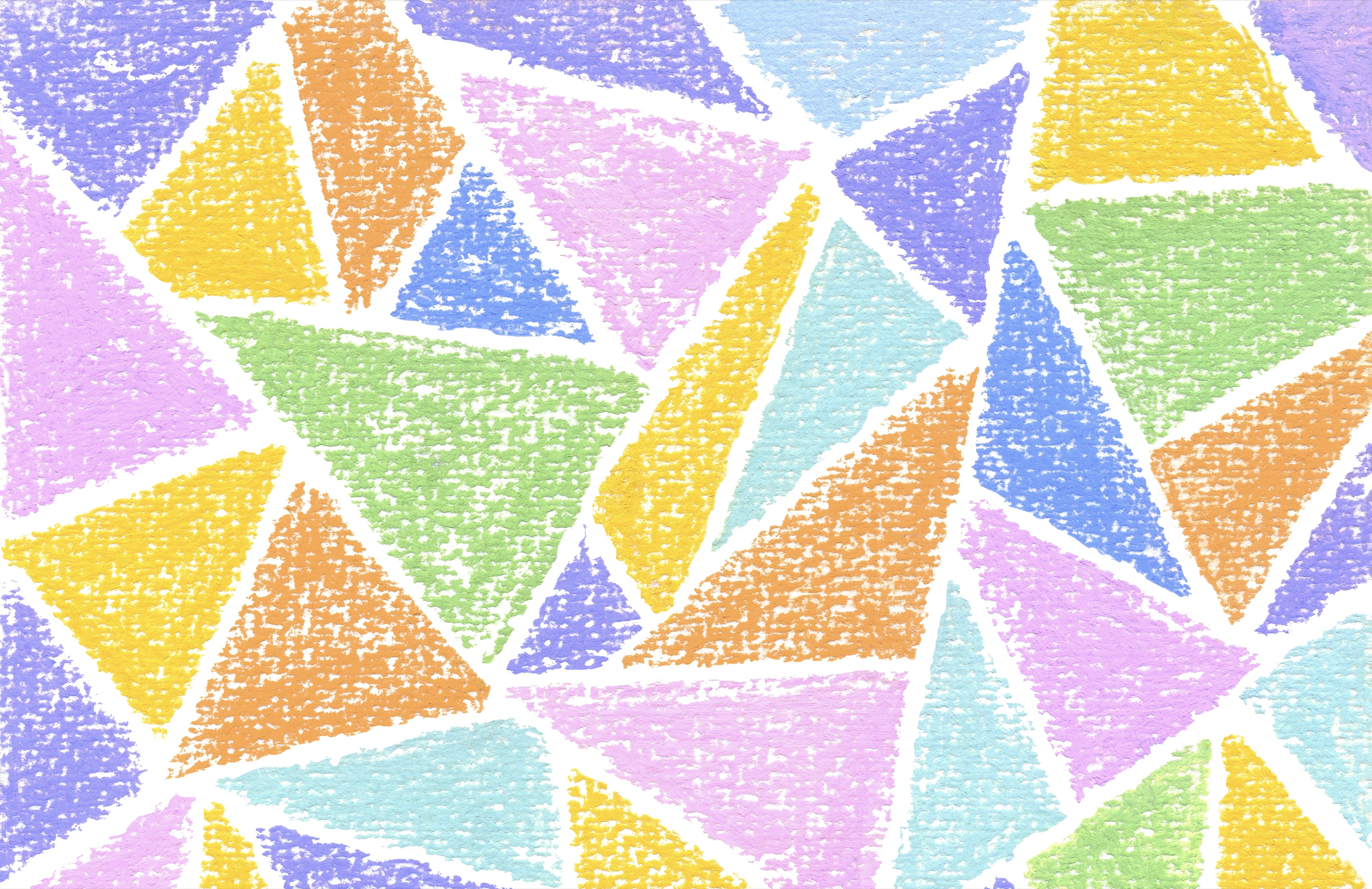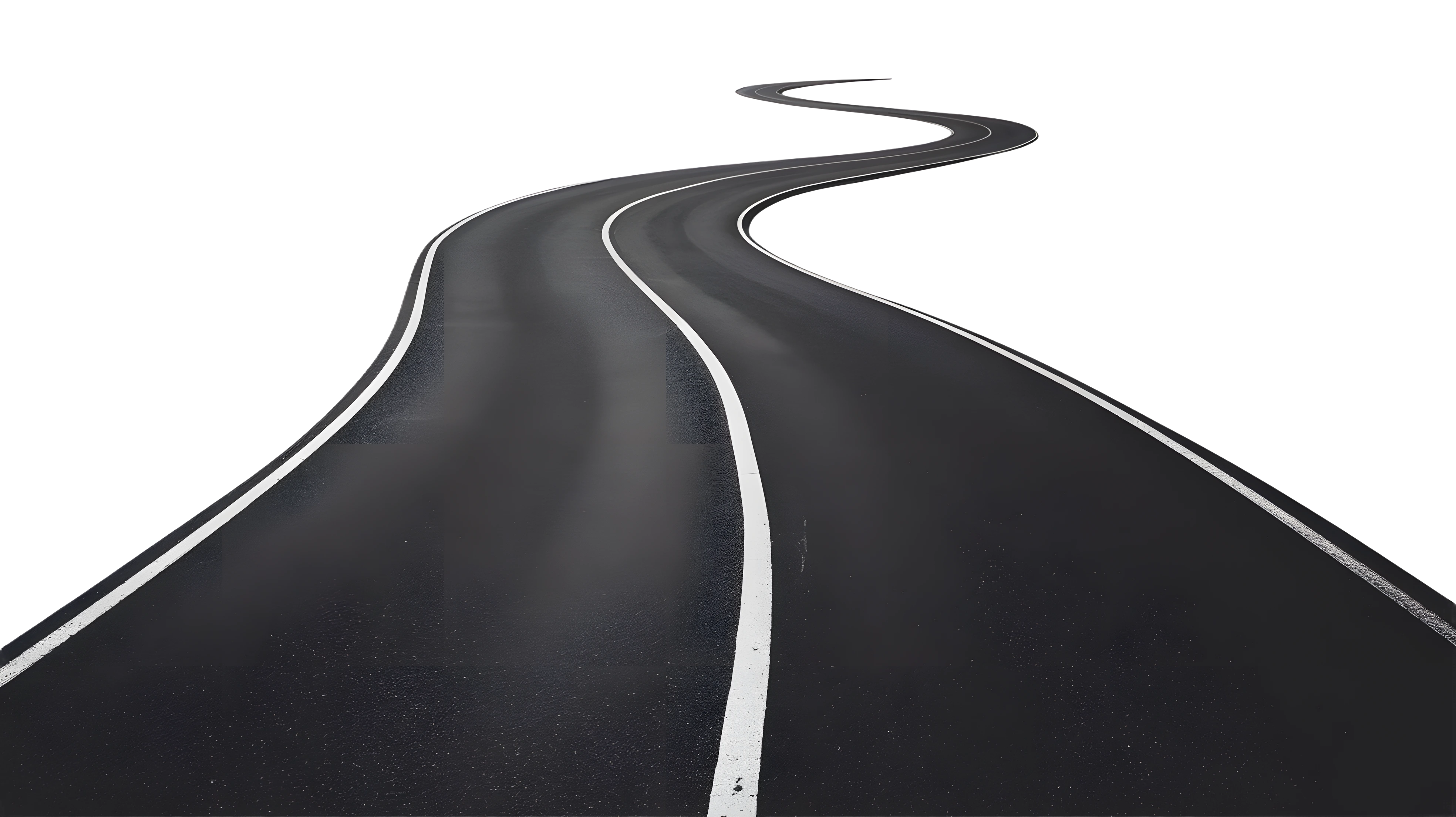Last night, I fell into the gutters of Abakaliki. Literally. A 6'3", 26-year-old man of someone’s dreams, swallowed whole by a dirty ditch in the middle of rainy season. It was 7:33 p.m. The streets were lit, but it didn’t reach the gutters: wet, wide and waiting for someone to slip. I was just on my routine evening walk and ten hours into my alternate-day fast.
I fast and walk 10,000 steps every other day because I look like a Teletubby. That’s my not-so-progressive way of saying: fat, and wildly out of shape. Except that this story is almost not about falling into the gutter. Or maybe, it is.
I wasn’t always fat, you see. Different, yes, but not fat. Joseph, from my Use of Library class, once said I could use some extra weight in case of oke ikuku, unexpected wind events. He also joked that my legs were smoother than his mother’s kerosene bottles. It has been almost a decade and I remember because I still don’t have much hair on my legs, or in the other places where regular adults grow hair. So yes, I’ve always been different. Just not fat.
Things took a turn in 2019. That was the year I added “heavy” to the list of things that made me different. It was also the year my mother died from diabetic complications.
That’s when I slipped into what I now know is called functional depression. The kind where everything looks normal on the outside, and you go about your day like nothing’s wrong. But inside, something is dying. Quietly. Hour by hour.
You have to know this. I’m a Christian. A neopentecostal, tongue-speaking Christian. That detail matters because it explains how I fell for the not-my-portion syndrome. I knew people died. I knew people lost their parents. I just didn’t realise I could be the "people." The ones who lose family. The ones who become motherless. Fatherless. Orphans.
I had a reputation too, for comforting others with scripture. I’d say death is only a transition for those in Christ. That their loved ones had gone to a better place. That this sin-infested world is nothing compared to glory. I knew all the right things to say, and all the right ways to wrap them in that notorious Christian lingo.
Thinking about it now, that might be why I never looked depressed. It was a healer-heal-thyself kind of situation. Maybe I was ashamed. Ashamed to be the consoler who couldn’t be consoled, the preacher who couldn’t live his own sermons.
But my mind was loud. It thought many thoughts. Thoughts of quitting everything, school, life, all of it. I had lost the one person who truly saw me. The one who accepted all my differences without question.
She proved that a thousand times over, like the Sunday she marched to the altar to take me home mid-Mass because I was dizzy from medication. Everyone stared, but she didn’t care. She never did.
Shortly after I turned nine, I developed random rashes all over my body. She took me to the teaching hospital in Parklane, Enugu, where our health insurance was domiciled. They gave me injections and prescribed tablets to be taken every eight hours. On Sunday morning, I took the drugs before heading to church. But the doctors had warned I might feel dizzy, the kind where it feels like your eyes are turning on their own.
At the time, I was a mass server. I hear they’re now called altar knights, the ones with the heavenly privilege of serving at the altar, carrying candle lamp stands, and bowing in rehearsed coordination to one another, the priest, or various forms of the cross and statues. It didn’t matter what sins you committed outside the church, once you wore the overflowing alb, the surplice matched to the church calendar, and the cincture around your waist, you were holier than the "laity" who couldn’t even step past the altar rails.
That Sunday, as Mass stretched into its third hour, my mother walked all the way from the back of the church to the reserved section where altar servers sat. She asked if I was dizzy. I was. I was uncomfortable. And just like that, she ended Mass for both of us. She took me home to monitor me.
There were consequences for leaving Mass early. People watched you walk out, their judgy eyes peering through every step. If you were an altar server like me, you also paid a fine and did extra chores the following Saturday. But none of that mattered to her. Who cares about Mass when her baby needed attention? Who said she had to be Catholic? Anything for me. Her baby.
Growing up, certain women who weren’t always the kindest used to say I was too attached. They called me "handbag." But I didn’t care. My mother was my literal hiding place, even if I sometimes took her for granted.
I have to admit, I’ve thought about losing my parents before. Or rather, losing my father. I had quietly imagined how I might cope with his death. I think it’s because, everywhere I looked, fathers were the ones dying. They became irrecoverably sick, poisoned, or caught in terrible accidents. Fathers. They’re always dying.
But mothers were always the ones who picked up the slack. Whether from a dead husband, an abusive one, or a deadbeat father, mothers stayed. So I believed mine would always be there.
And because we live in a post-feminism world where every man is painted as a villain, let me be clear. My father is a supportive husband and a present father. Sometimes I wonder what I did to deserve someone so selfless. In fact, I’m convinced he was meticulously designed in the mind of God and sent into the world just for me. I couldn’t have asked for better.
Still, this story is not about my father.
Let’s get back to my fat body.
Grief doesn’t just sit in your chest. It settles into your bones, your blood, your body. It changes how you eat, sleep, move. It slows everything down, until food becomes therapy and motion becomes a fairytale. That’s what happened to me.
Even though I was functionally depressed, it didn’t take long before I could no longer function effectively.
I was always weak and tired. And weak, tired people usually end up in the hospital, or in my case, the university medical centre.
After three months with no visible improvement, the consultant finally sent me for multiple tests. HIV. Kidney function. And every other unimaginable thing he suspected.
The results came back normal. Not even my blood glucose levels were high. So he sent me for therapy.
Maybe one day, I’ll tell you about that therapist. A middle-aged woman who spent more time eating than listening to me. But again, that’s a story for another day.
The truth? Eating was the only part of my day that felt alive. I wasn’t hungry, I was hurting. And food gave me something to hold onto when everything else was slipping. One night, I ate four wraps of akpu, a full bowl of custard, and finished half a loaf of bread in silence. I didn’t even taste it. I just needed to be full of something. Anything other than this loss.
Through all of this, I didn’t lose my appetite. If anything, I ate more.
Except I wasn’t moving. I was weak, tired, and always eating.
Soon, my waistline started to shift. My belly swelled, and my face puffed up. I hit 90 kilograms before the end of 2019. Then COVID came, and I spent all of 2020 at home. By the time the lockdown lifted, I was well over 120 kilograms. For context, that’s about three bags of cement. But unlike cement, I didn’t feel solid. I felt unstable. Crumbling. Heavy. Depressed. Wallowing in grief.
Grief is personal. It doesn’t really get better with time. We just learn to cope. We learn to place a tight lid on what we’d rather not remember. Because remembering comes with a bitter aftertaste. It pulls up emotions that are best left unfelt.
The night she called, she asked me to pray for our family.
The next morning, she sent the remainder of my school fees.
One week later, she was set to return home. To her husband. To me. Her baby.
Physiology auditorium. 10:27 PM.
My brother called. He said Mum had been rushed to the hospital.
It was the night before the "Excitable Tissues" test. I was disoriented. I stepped out to pray for a while, then came back in and dozed off on my books.
In my sleep, I saw a large, heavy curtain break, not tear, violently into two separate parts. The force of it jolted me awake. I knew something was off. What I didn’t know was that she had just passed. The exact time: 2:31 AM.
Maybe I could have prayed better. Or harder.
What if I had prayed through the night?
What if I failed her?
It’s been six years.
Six years of many questions and few answers.
Six years of wondering what I could have done differently.
Six years of wishing we lived in a different country. One with a working healthcare system. I imagine she’d still be here. She would’ve called today to tell me how fellowship went. She’d laugh and tell me whose cat went missing.
"Tell them your mother is still alive."
That’s how she used to reassure me. That all my needs would be met.
Now, I guess I have to tell “them” that my mother has transitioned.
And I guess not all my needs will be met after all.





